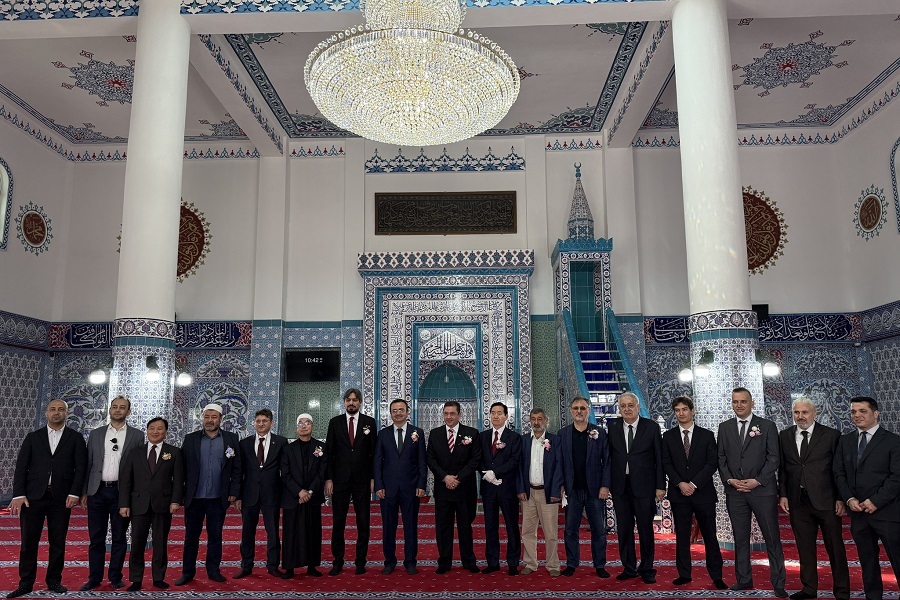Seoul’s Main Mosque Reopens After Interior Restoration

Originally constructed in 1976, the mosque now features elaborate Turkish tilework and Ottoman-inspired calligraphy inside its prayer hall, while its exterior remains closer to a traditional Middle Eastern style.
The Turkish Embassy in Seoul hosted a reopening ceremony, following financial and logistical support from several Turkish entities, Korea Joongang Daily reported on Friday.
Funding for the project totaled approximately $487,000, with the Korean Muslim Federation contributing $280,000 and Turkish institutions—primarily the Presidency of Religious Affairs and the Ministry of Foreign Affairs—providing $207,000.
The renovation was also supported by the IHH Humanitarian Relief Foundation and a partially state-owned airline.
Read More:
Interior enhancements include the installation of hand-crafted ceramic tiles known as Çini on columns, windows, and ceilings, along with new murals and decorative elements. The mosque’s wooden minbar, traditionally used for Friday sermons, has been replaced with a tiled staircase structure.
Süleyman Elik, a social affairs counselor at the Turkish Embassy, estimated that 80 percent of the tiles used are of Turkish origin.
He expressed the hope that the mosque might become an "open museum" for Turkish Islamic art.
Source: Agencies



